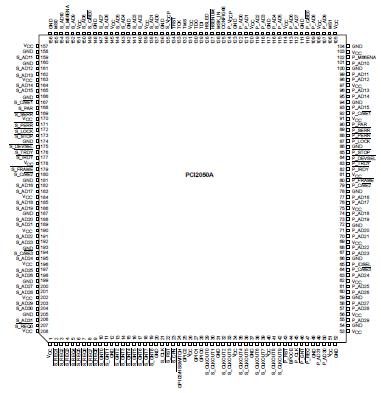PCI2050A: Features: · Two 32-Bit, 66-MHz PCI Buses· Configurable for PCI Power Management Interface Specification· Provides CompactPCITM Hot-Swap Functionality· 3.3-V Core Logic With Universal PCI Interfaces ...
floor Price/Ceiling Price
- Part Number:
- PCI2050A
- Supply Ability:
- 5000
Price Break
- Qty
- 1~5000
- Unit Price
- Negotiable
- Processing time
- 15 Days
SeekIC Buyer Protection PLUS - newly updated for 2013!
- Escrow Protection.
- Guaranteed refunds.
- Secure payments.
- Learn more >>
Month Sales
268 Transactions
Payment Methods
All payment methods are secure and covered by SeekIC Buyer Protection PLUS.

 PCI2050A Data Sheet
PCI2050A Data Sheet







